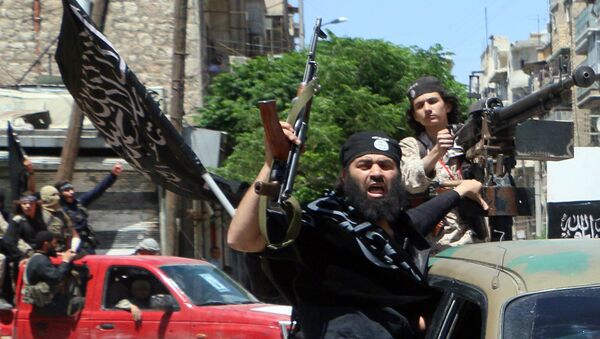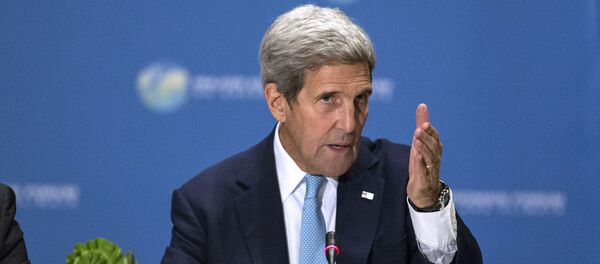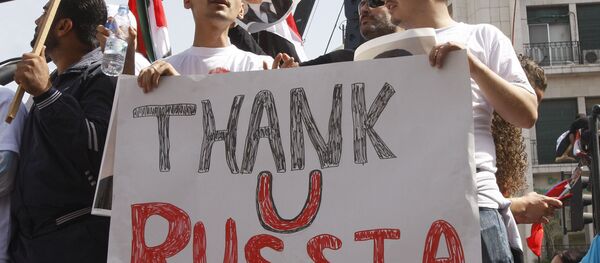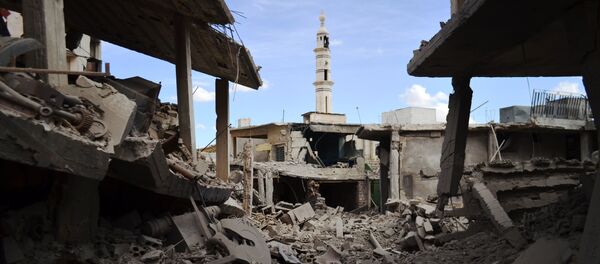"WikiLeaks released over 7,000 secret diplomatic cables that document that funding. The cables revealed that up to 6,3 million dollars was funneled to the Movement for Justice and Development, a Syrian dissident organization based in London. The Movement operated the Barada satellite channel that broadcasted anti-government propaganda in Syria and that played an important part in the 2010-11 anti-Assad protests," the journalist emphasized in her article for Information Clearing House.
"The remaining 6 million were spent by the US in order to support rebels and activists and educate journalists in ways of manipulating the news about the Syrian crisis in a manner that would benefit the rebels," she added.
Remarkably, in April 2011, spokesperson for US State Department Mark Toner, confirmed that the WikiLeaks documents were authentic, Megaloudi stressed.
However, the US was not the only one state who facilitated the anti-government turmoil in Syria. In 2012, France and Britain "pushed for a relaxation of the EU arms embargo to Syria" in order to supply "defensive arms" to "opposition fighters."
"In December 2012, at a meeting held in Marrakesh, the United States backed the National Coalition as the transitional government of Syria," the journalist reminded, adding that more than 100 other countries recognized the Syrian opposition despite fears that so-called Syrian "freedom fighters" might have certain links to al-Qaeda.
The US and France never hid the fact that they were arming and training Syrian opposition fighters. Unfortunately, it has always been a problem for the West to distinguish "moderates" from extremists.
"In August 2013, yellow smoke rose over the rebel-controlled suburb of Ghouta near Damascus. A few hours later and the lifeless bodies of 1,000 people, including 300 children would be lying in the streets. It was one of the worst sarin attacks in the history of the Syrian civil war. President Obama accused the Syrian regime for allegedly crossing the 'red line' he had set in 2012 on the use of chemical weapons and announced US military intervention in Syria," Megaloudi narrated.
It was not the first time when the Syrian government has been accused for gas attacks. However, a United Nations investigation into human rights abuses in Syria indicated in May 2013 that at least two of alleged attacks (in Aleppo in March 2013 and Homs in December 2012) were most likely carried out by Syrian rebels. Referring to evidence from casualties and medical staff UN international Prosecutor Carla del Ponte claimed that it was rebel forces who had used the deadly nerve agent sarin against the country's civil population.
So, who was behind the sarin attack in Ghouta?
Quoting Pulitzer Prize-winning journalist Seymour Hersh, Megaloudi noted that in 2012 American and Turkish intelligence service believed that the rebels could lose the war against Bashar al-Assad.
"This prompted the Turkish national intelligence agency and Gendarmerie, the nation's paramilitary law enforcement arm, to work with al-Nusra Front in Syria in order to help them build their chemical development," Megaloudi elaborated.
Interestingly enough, US Defense Intelligence Agency was aware of that fact and knew about the Turkish and Saudi involvement into the affair.
Citing Hersh, Megaloudi suggested that both Turkey and Saudi Arabia believed that the attack would prompt Washington to launch a full-scale attack against the Syrian government and topple Bashar al-Assad.
However, "it would take years until the political and military games surrounding the Syrian conflict come to light," the journalist underscored.
"It seems that the bodies of the drowned Syrian children shocked a lot of consciences, but changed no policies," Megaloudi concluded.





